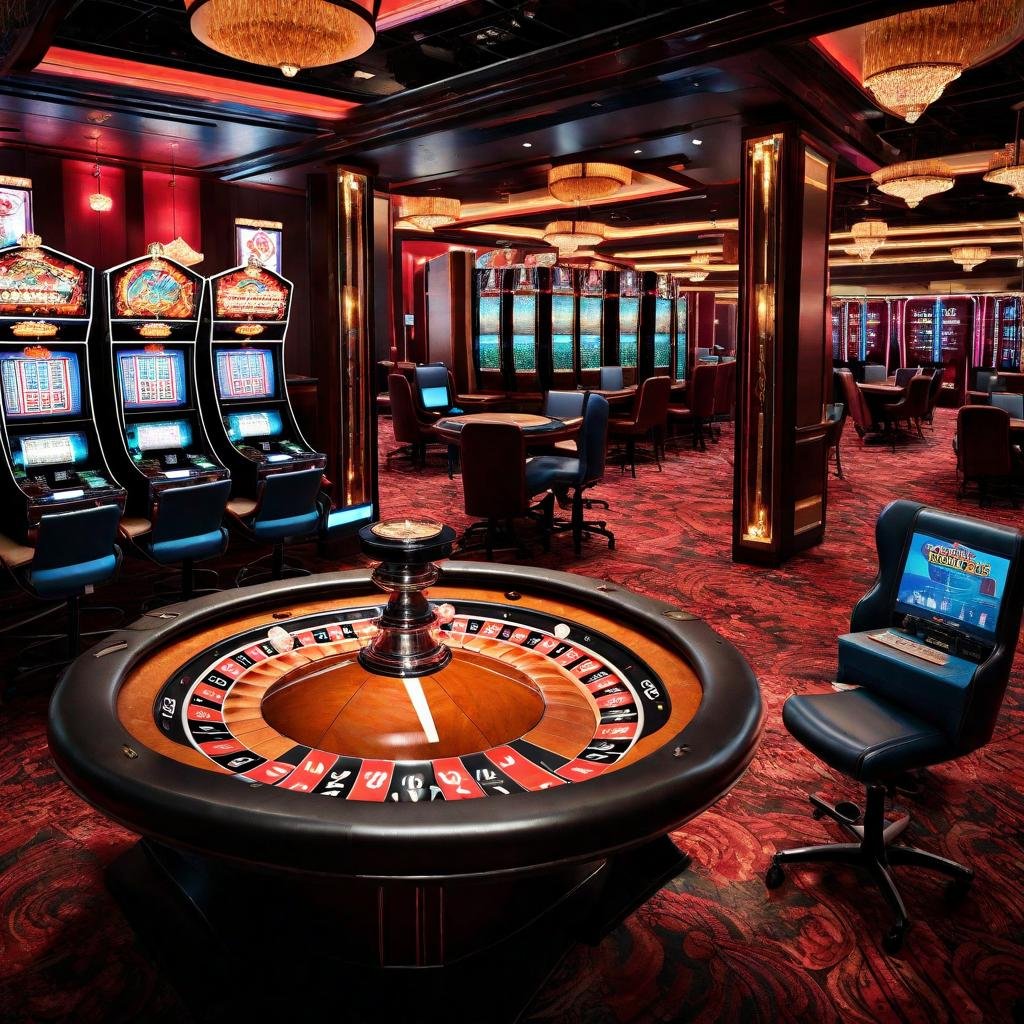
Gambling games have long been a captivating entertainment option, drawing countless of players from different cultures around the globe. From the lively casinos of Vegas to the busy gambling halls of Macau, these games serve as a bridge that unites people across different backgrounds. The allure of luck, skill, and uncertainty entices not only those hoping to gamble for profit but also those seeking a shared experience. https://789p.so/
The cultural impact of casino games extends far beyond the gaming floor. They often embody the social norms and beliefs of the cultures in which they flourish. Games such as seven-card stud, blackjack, and the spinning wheel have embedded themselves into the fabric of cultural phenomena, influencing various aspects from films to clothing. As we explore this fascinating intersection of gambling and life, we can gain insights into how casino games shape and are shaped by the environment surrounding us.
Historical Progression of Gambling Activities
The roots of gambling activities can be tracked back to old cultures, where betting in different forms was extensively practiced. In Ancient China, around two thousand three hundred years before Christ, a form of gambling known as Keno was common, while in ancient the Roman Empire, soldiers would often wager on the outcomes of their games. The idea of using randomness for fun and profit evolved over the years, leading to the creation of more structured games. By the late Middle Ages, gambling houses started to appear in European nations, notably in Italy, which presented early versions of famous activities still enjoyed today.
As gambling expanded popularity in European regions, the 17th and 18th centuries saw the appearance of gaming houses as specialized locations for gambling. The initial official casino, the Ridotto, was set up in Venice in the year 1638, offering games like Baccarat games and the game Faro. This era marked a crucial turning point, as casinos started to draw not just the high society but also the growing middle class. The sophistication of activities grew, leading to the introduction of new rules and variations that enhanced the experience of players.
In the 19th century, the industrial age and transformations in social norms also changed the landscape of casino games. The introduction of the game of roulette and new one-armed bandits drew a more diverse clientele, and gaming houses became seen as acceptable fun. This era witnessed the worldwide proliferation of gambling, as casinos expanded from European nations to the Western Hemisphere, culminating in the development of the legendary Las Vegas Boulevard in the 20th century. The development of gaming games has continued into the current era, including technology and digital services, allowing them available to a universal population.
# Cultural Relevance in Different Communities
Casino games have profound cultural importance within a multitude of societies around the globe. In Las Vegas, the very core of the urban landscape is woven around casinos, where gaming is not just a hobby but a fundamental aspect of social engagement and community interaction. The dazzling lights and vibrant atmosphere attract millions, showcasing how gambling activities can influence local financial landscapes and cultural uniqueness. This environment transforms the notion of relaxation into an enriching experience that affects style, music, and even film.
In contrast, some cultures view wagering with more caution, seeing it through the lens of ethical considerations and customs. A case in point, in numerous Asian societies, games like Mahjong and Pai Gow Poker are steeped in history and possess significant social implications. These games are often played during get-togethers and celebrations, fostering collective connections and reinforcing kinship ties. The act of participating in these games goes above mere entertainment, reflecting ethics such as deference to seniors and the importance of collective enjoyment.
Simultaneously, in continental countries such as Monte Carlo and Italy, gambling activities serve as symbols of luxury and refinement. The stylish atmosphere of these establishments attracts both visitors and native inhabitants, upholding a sense of distinction and rarity. The art of poker and the strategic elements of games like the game of baccarat are celebrated, molding interpersonal interactions and cultivating an attraction that fascinates a heterogeneous audience. This emphasizes how games of chance can concurrently reflect and shape cultural attitudes towards risk, reward, and relationship building.
Financial Influence and Travel Industry
Casino games play a crucial role in the economic landscape of many regions, particularly those that depend significantly on visitor traffic. The revenue produced from gambling establishments fuels local financial systems, creating jobs not only within the casinos themselves but also in connected industries such as hospitality, dining, and recreation. This surge of tourists, drawn by the allure of gambling and the overall casino experience, stimulates spending across multiple local enterprises, contributing to the economic vitality of the region.
The presence of casinos often leads to the construction of facilities, including lodging, public transit, and leisure amenities. These developments are essential in enhancing the overall tourist experience, making locations more appealing to visitors. Additionally, many casinos contribute in local communities through support of activities and philanthropic initiatives, further integrating themselves into the community structure of the locality. Such investment not only supports economic growth but also fosters a positive image of the casino industry.
Furthermore, the global popularity of casino games drives competitive tourism, with locations vying to attract gamblers from across the globe. Iconic destinations like Las Vegas and Macau have become synonymous with casino culture, drawing millions each year. This advantage encourages creativity and variety within the gambling sector, influencing trends in leisure and hospitality that extend beyond their borders. The consequences of this tourism extend far, impacting local financial health and cultural exchanges on a global scale.